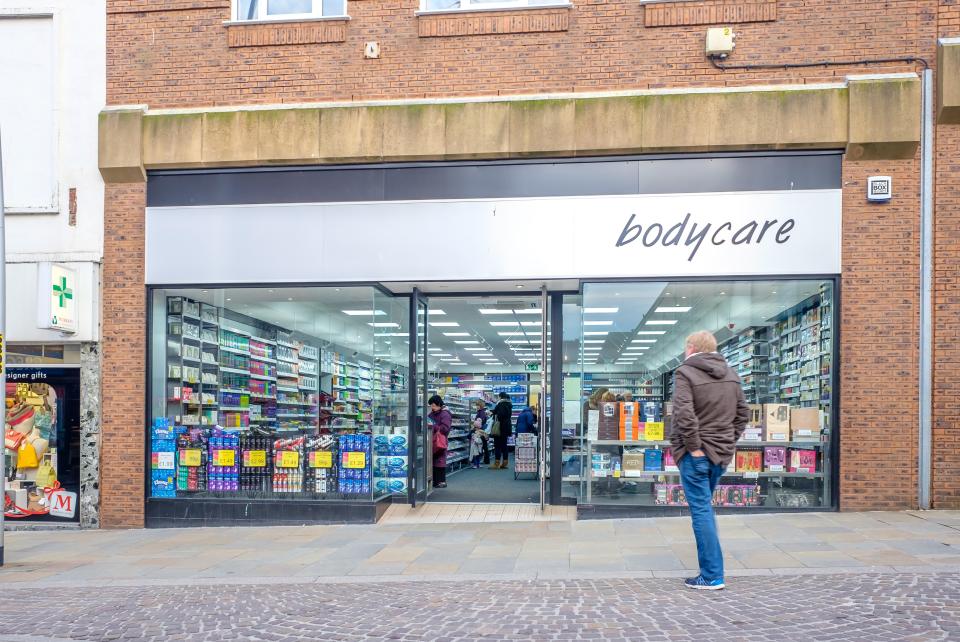A HEALTH and beauty chain with 149 shops across the UK is on the brink of collapse unless a buyer is found.
Bodycare, which employs 1,500 people, could fall into administration as early as next week, according to Sky News.
Advisory firm Interpath has been working with Bodycare’s owners, Baaj Capital, for months to secure a rescue deal.
Baaj Capital, led by Jas Singh, recently secured a £7million loan against the chain’s inventory to buy time, but efforts to stabilise the business appear to be faltering.
Bodycare, which sells brands like L’Oreal and Nivea, was profitable before the pandemic but has struggled financially since.
The retailer received government support during the pandemic but has since lost millions.
The company is run by retail veteran Tony Brown, formerly of BHS and Beales.
If Bodycare collapses, it would join a growing list of struggling high street chains, including River Island and Poundland, which have both sought drastic restructuring plans to survive.
Bodycare and its owners have not commented on the situation.
If chain collapses, administrators will take control of the company to decide if it can be saved, sold, or shut down entirely.
This could result in widespread store closures, job losses, and problems for suppliers.
Customers might also lose out, with gift cards potentially becoming worthless.
Full list of Bodycare stores
It comes on the same day that barristers for Poundland warned that the chain faces collapse if the High Court doesn’t approve its restructuring plan.
The ailing chain needs approval to shut stores, cut rents, and downsize its workforce to avoid running out of cash by September 7.
Poundland, which employs 14,700 staff and runs 800 stores, has struggled financially in recent years.
Its new owners, Gordon Brothers, who bought the chain for £1 in June, plan to invest £90million to rescue the business.
But their restructuring plan, needing High Court approval, includes closing 68 stores, cutting 1,000 jobs, shutting two warehouses affecting 350 workers, ending online sales, and reducing rents on loss-making stores.
Barristers warn the chain will collapse without approval.
In written submissions for the hearing in London, Tom Smith KC, for Poundland, said that the retailer’s financial position had “significantly deteriorated during the last two years” and that it had “performed poorly in a difficult retail and economic environment”.
He said: “The latest liquidity forecast shows that the group will run out of cash in the week ending September 7 2025.”
The barrister warned that if the restructure was not approved, the company’s directors would likely place it into administration by Friday.
The retailer has already launched closing-down sales with discounts of up to 75% as it continues to shut dozens locations by mid-October.
This month, 48 stores are set to close, with 37 already shut and another 11 closing on August 31.
While the closures are meant to save money, Poundland still holds the leases on these locations.
If the restructuring plan is approved, Poundland can give up its store leases to cut costs.
If the plan is rejected and the chain collapses, administrators will take control of the company to decide if it can be saved, sold, or shut down entirely.
Retail pain in 2025
The British Retail Consortium has predicted that the Treasury’s hike to employer NICs will cost the retail sector £2.3billion.
The Centre for Retail Research (CRR) has also warned that around 17,350 retail sites are expected to shut down this year.
It comes on the back of a tough 2024 when 13,000 shops closed their doors for good, already a 28% increase on the previous year.
Professor Joshua Bamfield, director of the CRR said: “The results for 2024 show that although the outcomes for store closures overall were not as poor as in either 2020 or 2022, they are still disconcerting, with worse set to come in 2025.”
Professor Bamfield has also warned of a bleak outlook for 2025, predicting that as many as 202,000 jobs could be lost in the sector.
“By increasing both the costs of running stores and the costs on each consumer’s household it is highly likely that we will see retail job losses eclipse the height of the pandemic in 2020.”












